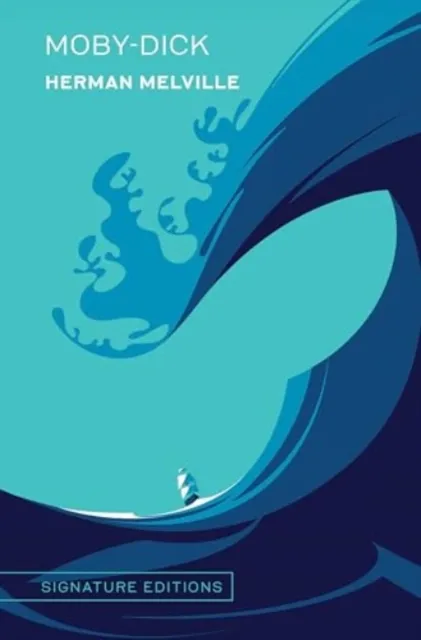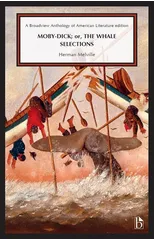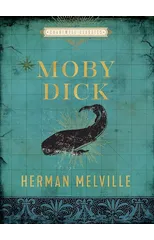"Call me Ishmael." With this famous first line begins a novel that Melville himself called "a romance of adventure." Set sail with Captain Ahab as he deftly maneuvers the Pequod across the ocean, hunting his prey. He is a man bent on revenge against the ever-elusive white whale that took his leg. Blineded by his ego-maniacal illusions of invincibility, he recklessly pursues Moby Dick, dragging an ill-fated crew in his wake—men bound to him by awe and terror alike. Relentless in his quest, Ahab believes Moby Dick to be the incarnation of evil and will not rest until that evil is extinguished. Will he triumph? Can Moby Dick, the monster of the sea and the embodiment of man's never ending struggle against nature, be destroyed? Narrated by Ishmael, a member of the Pequod crew, readers are given intimate details of the excitement of whale hunting, the quirks of the ship crew, the mystery of Ahab and the grandeur of Moby Dick. Brought to life with beautiful prose and a wealth of interesting historical facts, and blended with nonstop action adventure, Moby Dick is sure to deliver a thrill ride that won't soon be forgotten. Author Herman Melville was born in New York City on August 1, 1819.
Herman Melville
Herman Melville (1819-1891) was an American novelist, poet, and short story writer best known for his novel "Moby-Dick," a complex and symbolic work that explores themes of obsession, fate, and the struggle between good and evil. Melville's writing style is characterized by its rich symbolism, philosophical depth, and exploration of existential themes. His other notable works include "Typee," "Billy Budd," and "Bartleby, the Scrivener." Melville's contributions to literature have had a lasting impact on the development of American literature, particularly in the genre of the novel.




